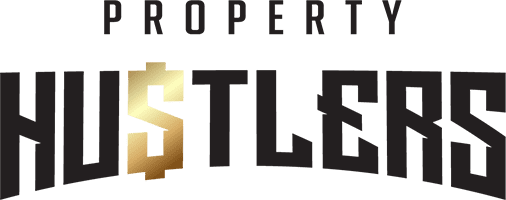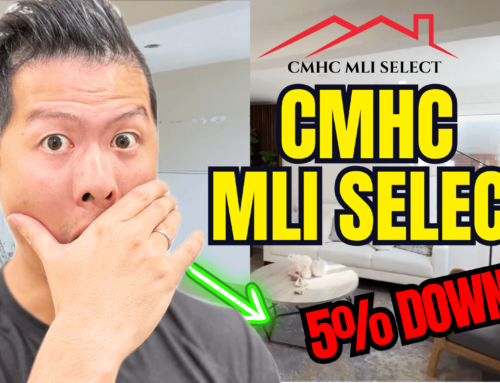For our audio-visual learners, here’s a video explaining the key strategies to succeeding in the US real estate market as a Canadian real estate investor.
Table of Contents
Shifting into the US real estate market as a Canadian real estate investor can be challenging. But the easiest way to get started and learn in a new market is wholesaling. It is a low-cost, low-risk, high-reward avenue if you are willing to put in the effort. It has always been a great way to make some quick money and use as an acquisition strategy for buying off-market, cash-flowing properties and flips. So, it’s a great foundation piece no matter what you’re trying to do in real estate.
“As a Canada-based real estate investor, can I start wholesaling real estate in the US without physically being there?”
The answer is yes, but you’ll need a well-structured system. It’s not a secret that it will be difficult at first.
Keep reading to find out how you, as a Canadian real estate investor, can start wholesaling real estate in the US market while still living in Canada. Suppose you’re not familiar with what wholesaling is; in that case, there are essentially five steps you need to know about, no matter what market you’re entering. You can read the article 5 Easy Steps to Raise Capital for Real Estate Investing or watch the YouTube video Raise Capital 101 | How to invest in real estate with no money down!
To understand how to apply all of this, this blog will be grouped into three main sections: networking, tools and resources, and finally, Canada versus US real estate market. Each section focuses on the differences between the two markets to give you a clear roadmap to help you bridge the gaps needed to start wholesaling in the US.
Set yourself up for success in Wholesaling Real Estate in the U.S.
1. Networking with Canadian Real Estate Investors Entering the US Market
When entering the US real estate market as a Canadian investor, establishing a reliable network is one of the biggest challenges. Even with prior experience in wholesaling, starting from scratch in the US where you do not know anyone can make it difficult to evaluate properties and close deals.
To overcome this, start by reaching out to local professionals—Realtors, property managers, contractors, and other service providers. Building strong relationships is key to successful wholesaling. You can begin by introducing yourself as a new investor from Canada. Focus on a few realtors. They are a great first choice as they’re going to be professional. Usually they’re rather articulate and there’s also a lot of mutuality in the relationship you’re cultivating with them because there’s a pretty easy way to circulate business to each other as you grow.
While contractors are also going to be quite good from a lot of distressed properties, which honestly is a lot of the bread and butter of the types of properties you’re going to be finding, but they’re not going to have as much time as realtors are going to have. The best contractors are going to be busy and they’re not necessarily going to make time for you unless you ramp up that relationship even further.
So, you really need to build those relationships. Focus on a few realtors who can visit properties for you and offer them some incentives for their assistance. This approach helps you secure someone reliable to handle the legwork when opportunities arise. Additionally, opening a US bank account through Canadian banks with branches set up in the US, such as RBC or TD, ensures you can receive payments smoothly. While there are a few logistical differences, such as needing a US phone number, these can easily be managed with free or paid apps that provide an American area code.
2. Tools and Resources Available in the U.S. for Wholesaling Real Estate
Let’s move on to the second section, tools and resources. Here’s the thing about tools and resources available in the American market versus the Canadian market: In the US, privacy is much less guarded than in Canada, which opens up a wealth of opportunities for sourcing off-market deals. Unlike in Canada, where you rely on flyers, Facebook ads, postcards, most states in the US allows you to access detailed information about properties with just a few clicks.
There are several websites that allow you to look up the name of who owns that property. From there, you can either skip trace their phone number, or in some cases, you can take the address and skip trace that to find out the name, phone number, associates, and all kinds of information about that property and the people affiliated with it, including the lawyer who did the deed or the people who signed for it.
This is particularly useful for targeting specific property types, such as semi-distressed duplexes, boarded-up houses, or properties in foreclosure. You can also identify individuals who have recently inherited a home or are struggling with overdue taxes or mortgage payments. The US real estate market provides access to highly sensitive information available for you to buy. If you’re not using these resources, you risk being outcompeterd by other American wholesalers who are already leveraging these tools.
3. Learn the Differences in Canadian vs. US Real estate market
A key difference between the Canadian and U.S. real estate markets is the significant disparity between neighborhoods. In the U.S., it’s common to find properties in a B-class neighborhood located just one block away from D-minus areas. These stark contrasts can occur without any obvious dividing lines, like train tracks—often, it’s just a street that separates two vastly different neighborhoods.
a. Neighborhood Disparities
It is a good idea to visit the place at least once or twice if you’re interested in exploring that market because the way it looks on paper can be very different from how it looks in reality. In addition, there’s a big difference between what Canadians are used to and what Americans are used to, which is a big deal.
As a Canadian real estate investor, you might look at things from a Canadian lens and have different expectations. Whether it’s renovations, quality of neighborhoods, or even crime, is very different. C-Class neighborhoods would be fine but C-minus neighborhoods might make you feel uncomfortable. Remember, wholesaling is not about personal preferences but securing deals that others will buy. Focus on market data and transactions rather than your own impressions of the area. Adjusting from a Canadian perspective to the US market requires setting aside personal biases and relying on numbers and data to make informed decisions.
b. Diversity in needs per property
Now another thing is the properties themselves. This is a lot more tangible and easier to understand. In Canada, it’s not that uncommon to see basement apartments, but in many places in the US, basement apartments are just not that common. You’ll see finished basements, which are often used as storage or utility. Additionally, many US duplexes and triplexes feature separate furnaces and water tanks for each unit. You’re going to find that in every municipality, there will be something unique to that city or municipality that’s different from another place. So, you need to work with a team, especially with real estate coaching professionals, who understand where these differences start and end.
c. Source of Financing in the US market
For somebody to buy a property, they need to understand things about financing because of their rules. For properties with significant issues, traditional lenders, like big banks, may refuse to finance them. This creates opportunities for cash buyers, who can purchase these distressed properties at a discount wherein they can renovate and improve these properties.
Additionally, US financial institutions offer ready-to-go packages for processes like BRRR (Buy, Rehab, Rent, Refinance, Repeat) and property flipping, which can simplify the investment process. Unlike in Canada, where private lenders are often needed for these processes, US lenders provide accessible financial lending that cater to real estate investors. They evaluate properties based on their profitability rather than the investor’s wealth, making financing easier for well-performing deals.
d. Closing a deal by title companies in the US
When closing a real estate deal in the US real estate market, you don’t necessarily need a lawyer like in Canada. Instead, you use title companies which handle the essential tasks of clearing the title and managing the transaction, making the process less costly compared to paying a lawyer for what is often routine paperwork. While complex deals might still require a lawyer, title companies handle the majority of transactions efficiently.
Many Canadian investors transitioning to the US real estate market find that the local processes and opportunities can speed up their success. They’re not necessarily doing things differently but benefit from operating in a market with distinct advantages. It’s like riding a wave rather than struggling to climb it, making their path smoother and more profitable as Canadian real estate investors.
If you’re ready to make the leap, join our community and participate in our events.
Navigating the US real estate market can feel like switching from hard mode to easy mode, especially if you’ve been playing on hard mode in Canada. Real estate coaching can provide you with the strategic guidance and support needed to excel in this new market.
Start Your Investing Journey
Are you interested in real estate investing? Are you struggling with the high barriers to entry to the Canadian real estate market? Join us now and see how we can help you acquire your first US real estate deal in the next 45 days!
Fill out the application form below and take the first step towards expanding your investment portfolio across the border.




